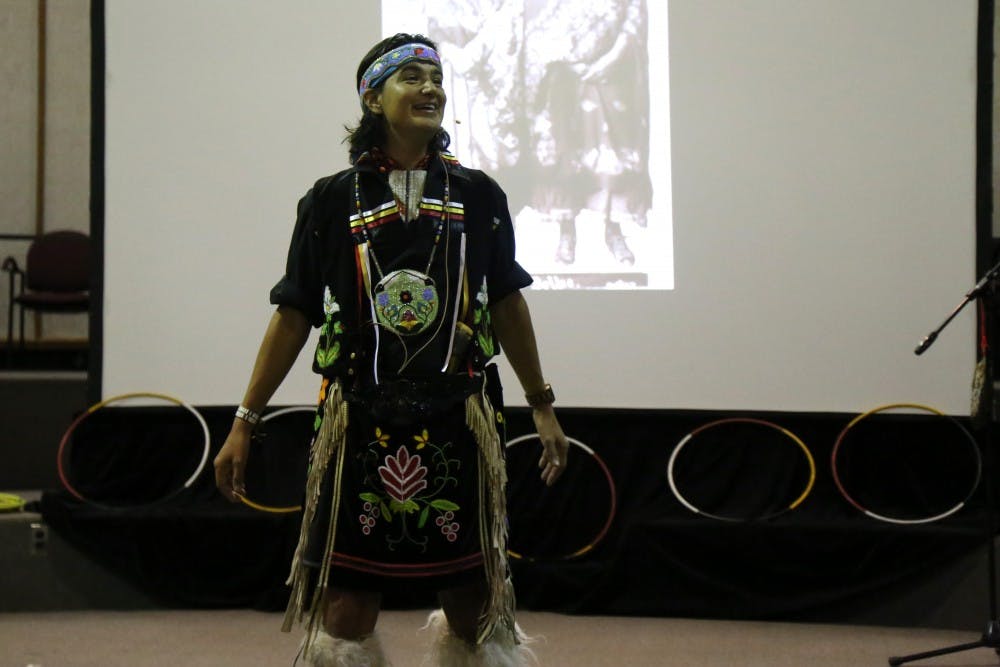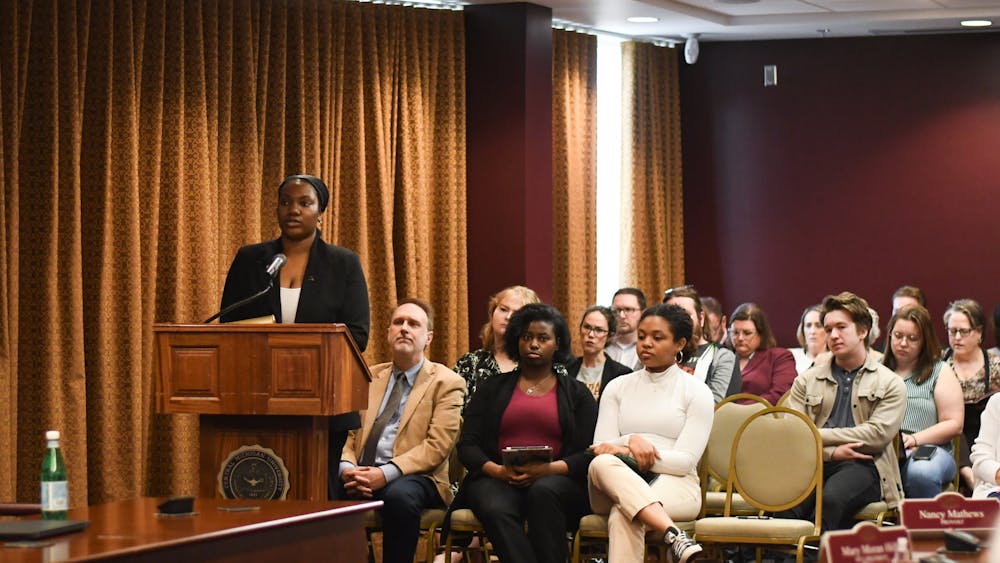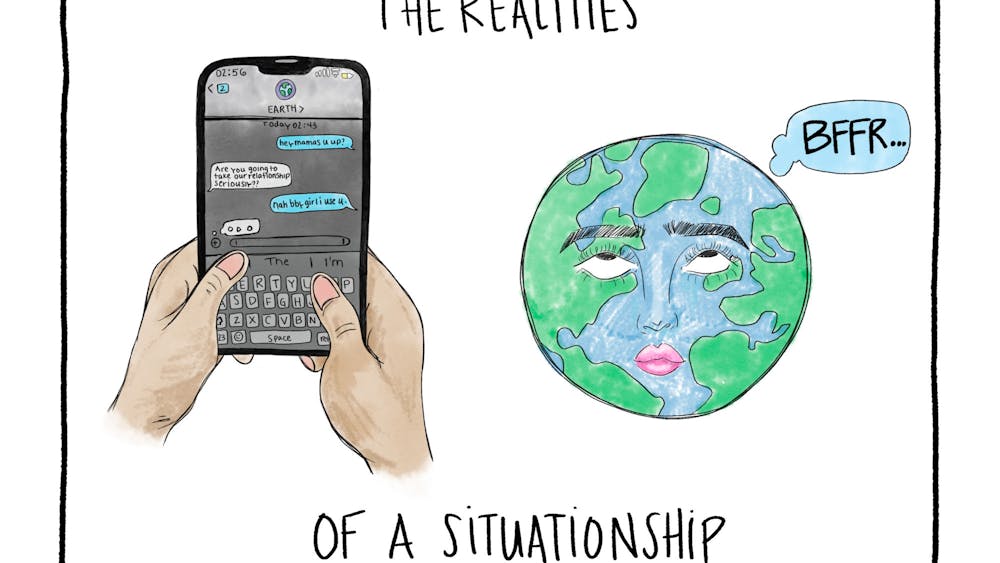Decolonizing through Dance: Grammy-award winner gives Indigenous Peoples Day keynote speech and workshop

Oneida and Ojibwe performer Ty Defoe, or Giizhig, speaks at the Indigenous Peoples Day Workshop, Oct. 10, in the Kiva Auditorium, in Moore Hall.
For two hours on Monday, Moore Hall's Townsend Kiva auditorium was turned into the circle of life.
Ty Defoe presented a workshop allowing participants to step out of their comfort zone to understand the Native American culture and idea of "two spirit" for Indegenous Peoples Day on Oct. 10.
The Grammy-Award winner was CMU's Indigenous Peoples Day keynote speaker. Events began with presentation at 4 p.m. in Brooks Hall Room 178, where a documentary titled "Two Spirits" and discussion occurred, before the workshop event in the Kiva kicked off at 7 p.m.
“The idea here is about that circle of life — that no one gets left behind," Defoe said. "You always get a front row seat in the circle.”
"Two spirit" is a Native American term describing how the body has both masculine and feminine traits. Defoe said he found his two spirit at a young age through dance.
For Defoe, who is a member of the Oneida and Ojibwe tribes in Wisconsin, dancing has always been part of his life.
"I try to do it as much as I can anywhere," Defoe said."I feel like these (events) are my role and responsibility in the community at-large and globally to bring people together as a two-spirit person. (This is also) a way to call to action as indigenous life ways.”

Defoe said a goal in the workshop was to look through an indigenous lens and decolonize the mind, body and soul.
Participants were taught several dances, such as the switch dance and the eagle dance. The switch dance usually alternates between feet.
Defoe, who donned an eagle outfit, said the eagle dance is meant to emulate an eagle and rise above yourself. He then asked the participants to do the dances with him after.
Defoe added the eagle dance is the most difficult dance for him because it is very slow and subtle. Marne senior Aleasha Bergman said the eagle dance was her favorite part of the workshop.
“You got lost in the fact that he was more of a bird-like creature than an actual human," Bergman said.
The workshop also posed non-dances, such as an exercise Defoe called the gender spectrum activity. Participants were given notes to place on four lines in the Kiva.
The first line signified gender at birth, the second was gender identity, the third was gender expression and the last one was traits you are attracted to. Each end of the line was masculine or feminine.
Participants placed their posted notes on what they most identified with. The posted notes were close or on the terms "masculine" or "feminine" on the first line, but were more scattered in the rest of the lines.
Defoe said the goal was to colonize space and create conversation.
“I loved the connection he had with the audience," Bergman said. "He kept us really involved. I feel like a lot of times when you go to things like this they speak at you. I thought he was opening up his spirit to all groups.”
Defoe then played the flute to pictures of Native Americans who identify themselves as "two spirit." He ten used hoola-hoops to perform the hoop dance, which generated applause from the crowd, and invited the participants to follow him in doing the dance.

The event closed with the participants holding hands and taking part in the "friendship round dance."
Muskegon senior Rae Hesling said the event was "absolutely amazing."
"I love learning about different cultures. I felt like it wasn’t even a specific culture we were learning about there — it was about life and completely open and everybody was accepted," Hesling said. "It was amazing to hear his viewpoints on life."
Defoe said the key points he tried to drive home was the decolonization of space, perspective and gender.
“As a workshop, people I feel like were able to experience something they may not have experienced," Defoe said.
In the intimate environment of the Kiva, Bergman said students could really feel a personal connection with the people around them.
“Even though you are doing something for yourself, you really connect with the people that you’re moving around (with) and you have to find respect for those people around you," Bergman said.
Helsing said she had not been to anything like the workshop before, but she was glad she did.
“I think I’m going to remember the most is how everybody was collective as one and nobody was judging anyone," she said. "It was absolutely awesome and freeing.”




